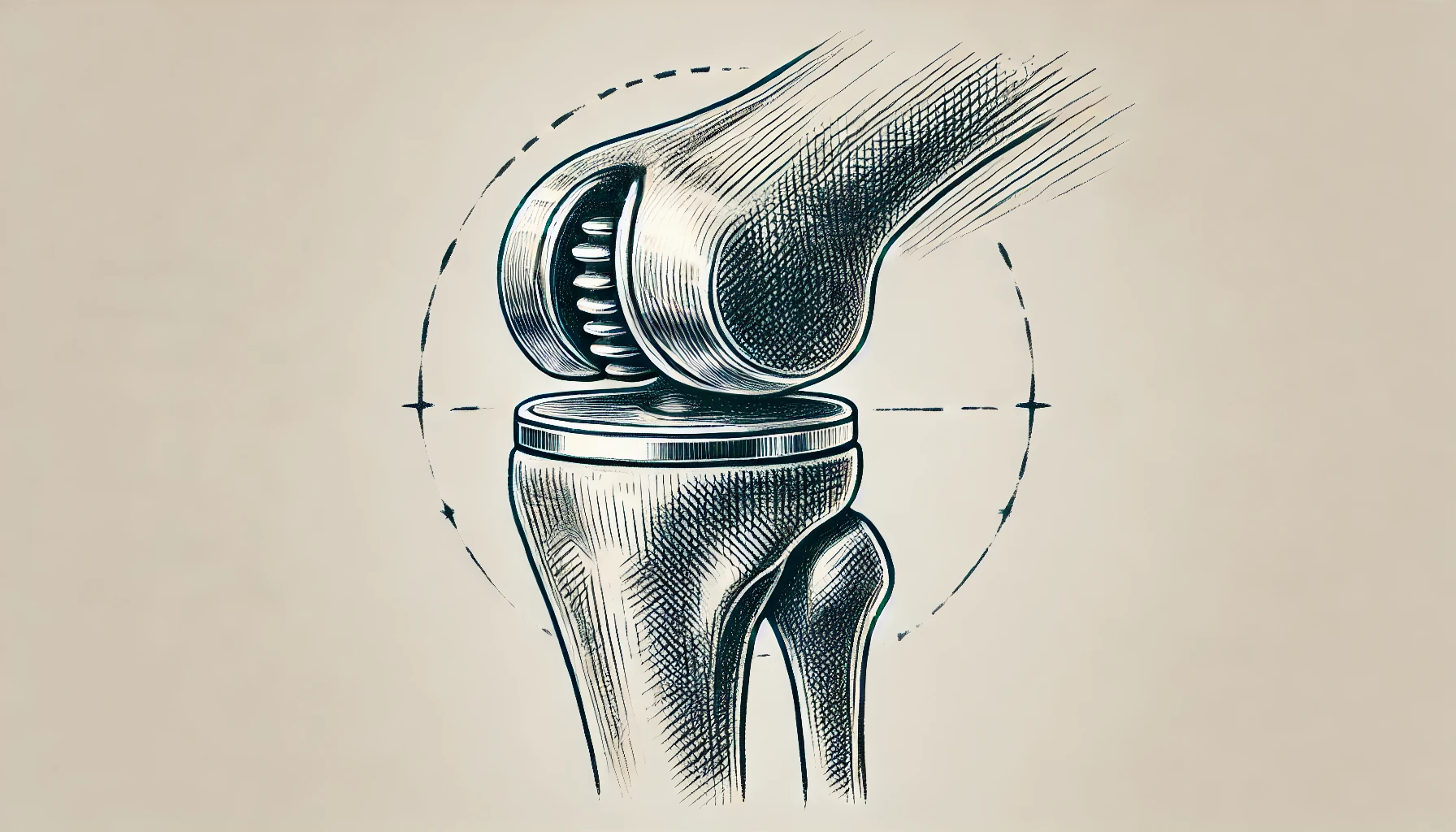
Total knee replacement (TKR), also known as knee arthroplasty, is a common surgical procedure for individuals suffering from severe knee arthritis or injury. It’s particularly popular among health tourism patients due to its affordability and high-quality care in countries like Turkey. This guide aims to answer the most common questions patients might have about the procedure, drawing on scientific studies to ensure accurate and reliable information.
What Is a Total Knee Replacement?
A total knee replacement involves removing damaged cartilage and bone from the surface of your knee joint and replacing them with metal or plastic components that mimic the function of a natural knee. The surgery is usually performed when other treatments, such as medication, physical therapy, or less invasive surgeries, have failed to relieve pain or improve mobility.
Scientific Reference: Studies show that over 90% of patients with advanced knee arthritis experience significant pain relief and improved joint function after TKR (Dawson et al., 2017).
Who Is a Candidate for Total Knee Replacement?
TKR is typically recommended for patients with severe osteoarthritis or rheumatoid arthritis who experience persistent pain and mobility issues that impact their quality of life. Patients who have tried non-surgical treatments without success are ideal candidates. Age is not a strict barrier, though the surgery is most commonly performed on people aged 50 and older.
Scientific Reference: A 2020 review found that TKR is effective for patients with end-stage knee arthritis who do not respond to conservative treatments (Singh et al., 2020).
How Long Does the Procedure Take
A typical total knee replacement surgery takes about 1 to 2 hours. The time may vary depending on the complexity of the case and the surgeon’s experience.
Scientific Reference: According to Ghomrawi et al. (2019), the average TKR procedure lasts between 90 to 120 minutes, though patient preparation and anesthesia may extend the total surgical time.
What Is the Recovery Time?
Most patients can walk with the help of a walker or crutches within 24 to 48 hours after surgery. Full recovery, which includes regaining strength and mobility, typically takes about 3 to 6 months. Rehabilitation through physical therapy is crucial to achieving the best outcome.
Scientific Reference: A 2018 study by Mizner et al. highlights that early postoperative physical therapy and continued rehabilitation significantly improve recovery outcomes after TKR.
Will I Be in Pain After the Surgery?
While you will experience some pain after the surgery, it is typically well-managed with medications. Postoperative pain is usually at its peak for the first few days and then gradually decreases. Modern pain management techniques, including regional anesthesia, have made recovery much more comfortable for patients.
Scientific Reference: Research by Memtsoudis et al. (2018) shows that multimodal pain management, including medications and nerve blocks, leads to better postoperative pain control and patient satisfaction.
How Long Will the Implant Last?
Knee implants are designed to last many years, but like any mechanical component, they can wear down over time. Most modern implants last 15 to 20 years, but some can last even longer depending on factors like activity level, weight, and general health.
Scientific Reference: According to a meta-analysis by Evans et al. (2020), over 90% of knee replacements last 15 years, and 80% last up to 20 years, making it a long-term solution for pain relief and mobility.
What Are the Risks of the Surgery?
Like any major surgery, total knee replacement carries some risks. These include infection, blood clots, and implant loosening or failure. However, the risk of complications is relatively low, especially in patients who follow post-surgical care instructions.
Scientific Reference: A study by Bozic et al. (2019) found that the complication rate for TKR is around 1% to 2% in healthy patients, with infection being the most common complication.
How Much Does Total Knee Replacement Cost?
The cost of TKR can vary significantly between countries. In Turkey, the cost is often much lower than in countries like the United States or the UK, without compromising on the quality of care. This makes Turkey an attractive destination for health tourism.
Scientific Reference: A comparison study by Pietrzak et al. (2021) found that the cost of TKR in Turkey is 50-70% lower than in Western countries, making it a popular choice for medical tourists.
How Long Will I Need to Stay in the Country After Surgery?
Most patients are advised to stay in the country for at least 2 to 3 weeks after surgery. This allows time for the initial recovery period and follow-up consultations to ensure the surgery was successful. Your medical team will also provide advice on travel safety, including precautions for avoiding blood clots on long flights.
Scientific Reference: A 2022 survey of medical tourism found that post-surgical stays of 2 to 3 weeks are standard for knee replacement patients traveling for surgery (Wang et al., 2022).
What Should I Ask My Surgeon?
It’s important to have a thorough discussion with your surgeon before undergoing TKR. Here are some questions to consider:
– What type of implant will you use?
– How many of these surgeries have you performed?
– What are the potential risks and complications specific to my case?
– What is the expected recovery timeline?
– Will I need to lose weight or change my lifestyle after the surgery?
Scientific Reference: According to Barrack et al. (2017), patients who actively participate in preoperative discussions with their surgeons are more likely to have satisfactory outcomes.
Conclusion
Total knee replacement is a highly effective procedure for those suffering from debilitating knee pain, especially for patients seeking affordable, high-quality care abroad. With proper preparation, a clear understanding of the procedure, and realistic expectations, you can make the best decision for your health and mobility.
This article should provide a comprehensive yet accessible overview for patients considering TKR, especially those traveling to Turkey for the procedure.
Note: If you are seeking the best knee surgeons in Turkey, including professors or associate professors who specialize primarily in knee surgeries, please feel free to contact us.
References:
– Barrack, R. L., et al. (2017). Patient participation in preoperative discussions improves outcomes.
– Bozic, K. J., et al. (2019). The rate of complications after total knee arthroplasty: A risk assessment.
– Dawson, J., et al. (2017). Long-term outcomes of total knee arthroplasty for osteoarthritis.
– Evans, J. T., et al. (2020). Longevity of knee implants: A systematic review and meta-analysis.
– Ghomrawi, H. M., et al. (2019). Operative time in total knee replacement and its effects on outcomes.
– Memtsoudis, S. G., et al. (2018). Multimodal analgesia strategies for total knee arthroplasty.
– Mizner, R. L., et al. (2018). Physical therapy’s role in recovery after total knee arthroplasty.
– Pietrzak, J. R., et al. (2021). Comparative costs of total knee replacement across countries.
– Singh, J. A., et al. (2020). Indications for total knee replacement and associated outcomes.
– Wang, H., et al. (2022). Postoperative care for medical tourism patients following knee replacement surgery.

